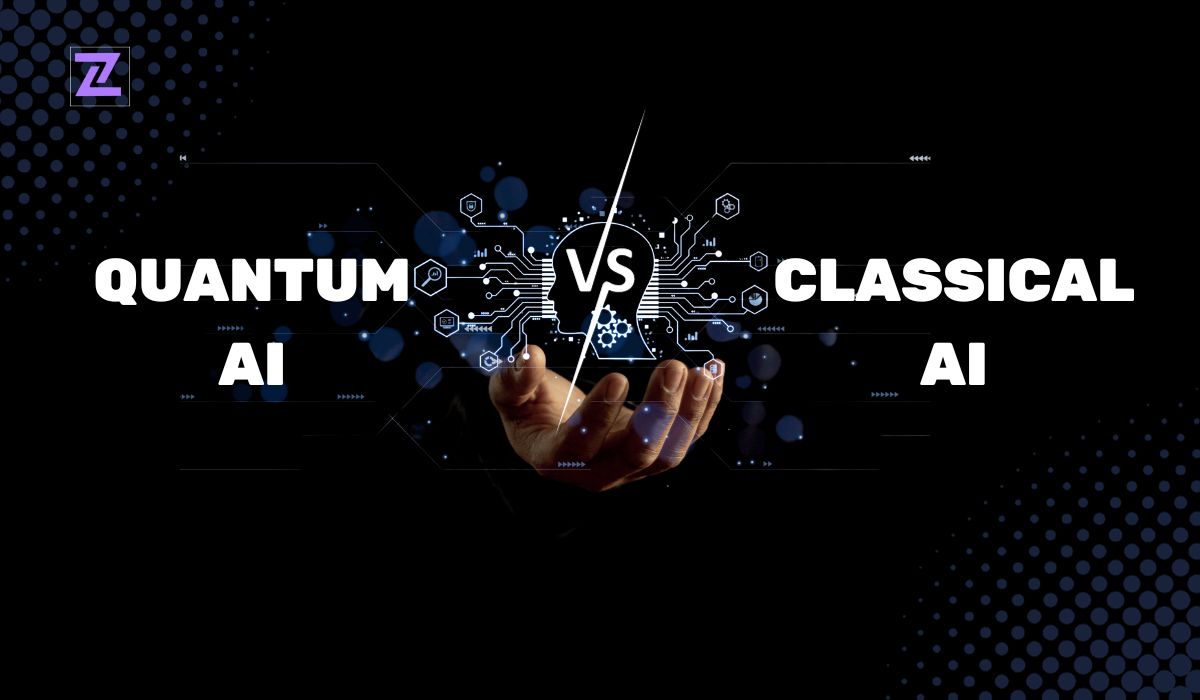
In technology, Artificial Intelligence (AI) stands as a testament to human innovation, continually pushing boundaries and reshaping the way we approach complex challenges. Classical AI algorithms have been the bedrock of this transformation, but the emergence of Quantum AI heralds a paradigm shift that could redefine the very fabric of AI. In this exploration, we delve into the realms of Quantum AI and Classical AI, comparing their approaches, capabilities, and the transformative potential they hold.
Processing Power: Quantum Parallelism vs. Classical Sequentiality
The cornerstone of the Quantum AI revolution lies in its unique approach to processing information. Classical AI relies on classical bits, representing 0s and 1s processed sequentially. Quantum AI, however, introduces qubits that can exist in multiple states simultaneously, thanks to the principles of superposition and entanglement. This quantum parallelism empowers quantum computers to process vast amounts of information simultaneously, promising an exponential speedup in certain tasks when compared to their classical counterparts.
Problem-solving Capabilities: Quantum Superposition
The concept of superposition in Quantum AI opens new frontiers in problem-solving. By existing in multiple states simultaneously, Quantum AI can explore various solutions concurrently. This proves particularly advantageous in tasks involving complex optimization, where the ability to consider numerous possibilities simultaneously provides a distinct edge. Classical AI, constrained by sequential processing, may require significantly more time to explore the same solution space.
Machine Learning and Pattern Recognition: Quantum Advantage
Machine learning, a pivotal subset of AI, relies heavily on processing large datasets and identifying intricate patterns. Quantum AI, with its quantum advantage, exhibits the potential to outperform classical algorithms in terms of efficiency. This advantage becomes particularly pronounced in machine learning tasks such as image recognition, natural language processing, and recommendation systems, where the parallelism inherent in quantum computing offers a quantum leap in processing capabilities.
Security: Quantum Cryptography vs. Classical Encryption
The issue of security takes center stage in the ongoing Quantum AI vs. Classical AI debate. Quantum AI introduces the revolutionary concept of quantum cryptography, leveraging the principles of quantum mechanics to establish secure communication channels. Classical encryption, grounded in mathematical algorithms, faces potential vulnerabilities with the advent of quantum computers, which can efficiently crack certain mathematical problems that underlie classical encryption methods.
Practical Implementations: Current State and Future Prospects
While the promises of Quantum AI are tantalizing, it's crucial to acknowledge the current state and the challenges that lie ahead. Quantum computers are still in nascent stages of development, grappling with issues like error correction and maintaining quantum coherence in practical, large-scale implementations. In comparison, Classical AI, with its maturity, continues to dominate everyday applications.
In the ongoing discourse between Quantum AI and Classical AI, it becomes clear that both paradigms bring unique strengths and face distinct challenges. While Quantum AI holds transformative potential in specific problem-solving realms, Classical AI remains the reliable workhorse powering our daily interactions. The future portends a harmonious coexistence where Quantum AI complements rather than replaces Classical AI in the broader AI landscape.
The Future of Quantum AI
As we gaze into the future, the potential of Quantum AI appears boundless. Advancements in quantum computing are expected to catalyze the development and application of Quantum AI across various domains. This surge in Quantum AI's influence is poised to revolutionize industries such as healthcare, finance, logistics, and more.
Moreover, Quantum AI is anticipated to play a pivotal role in addressing global challenges like climate change and disease prediction. The unparalleled speed of data processing afforded by quantum mechanics enables Quantum AI to analyze vast datasets swiftly, offering more efficient solutions to these monumental problems.
However, the path to realizing the full potential of Quantum AI is riddled with challenges. Robust quantum algorithms, overcoming hardware limitations, and ensuring ethical use are imperative components of this transformative journey.
In conclusion, while Classical AI remains an integral part of our daily lives, the emergence of Quantum AI signals the inception of a new era in artificial intelligence. The future promises an exciting synergy as we harness the power of quantum mechanics, with Quantum AI poised to assume a central role in shaping the trajectory of AI in the years to come.